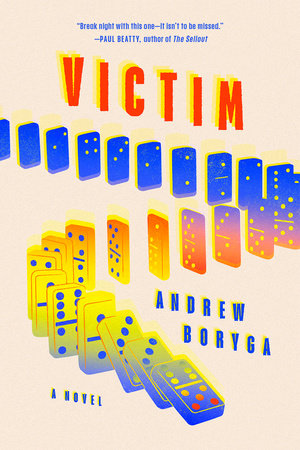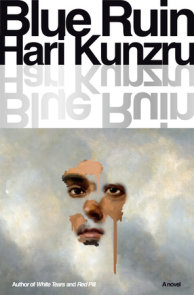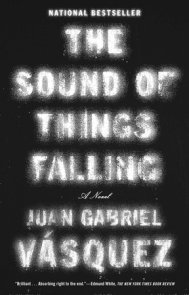READERS GUIDE
Questions and Topics for Discussion
1. The opening sentence of the novel is “I wasn’t trying to play the victim until the world taught me what a powerful grift it is” (page 1). What does that mean? How does the novel reexamine and redefine who is a victim and what makes a victim? Who, if any, are the victims portrayed in this novel?
2. During the breakup scene between Anais and Javier, he says, “But without a campus where we were on top, when it was just us, in a five-story walk-up . . . the sexiness of it all quickly vanished and we were left with who we really were” (page 166). What are the major differences between Anais and Javier? Are they all that different from each other?
3. What do you make of Mr. Martin’s counseling of Javier when he is in high school?
4. Mr. Martin and Anais are key catalysts for Javier as his story and persona progress. Are there any differences between how Mr. Martin and Anais perceive Javier? In what ways, if any, did their perceptions of Javier’s challenges shape Javier’s perception of himself, his family, and his neighborhood?
5. Were you surprised by how Anais grew up when Javier finally visited her parents and childhood home? What kind of home did you expect Anais to have grown up in?
6. On page 53, Javier’s mom says he is not poor and that he didn’t grow up with any challenges. Do you agree with Javier or his mother’s perspective?
7. Both Anais and Javier struggle with being “authentic” (page 144). What does it mean to you to be authentic? Share a time when you did something to prove that you were being “authentic.”
8. Anais says that she wants to live “somewhere ‘clean and cute’ but also somewhere that would allow her to feel like she was ‘part of a community’” (page 142). What do those descriptions mean to Anais? If those were your words, what would they mean for you?
9. During Javier and Ricardo’s altercation about the LTC articles, Ricardo says, “I’m the real representative” (page 138). Who is the real representative of the community?
10. The novel sets up Gio as the most obvious victim as he is the one who went to prison. But is Gio a victim? If not, then how would you label Gio?
11. When Javier and Gio reconnect after Gio’s release from prison, Javier insists he is not a liar but rather taking a “shortcut” because that was the only reason for The Rag’s interest in his work. Javier then asks the reader, “What did that say about [The Rag]? Wasn’t that the bigger issue?” (page 215). In your opinion, what does this say about the magazine?
12. Javier says that one of his mistakes was not interrogating his fear. What does it mean to interrogate your fear? How would that have helped him not make the mistakes he made throughout this novel?
13. Javier is addicted to checking his social media. Can you relate to this? How many times a day do you check social media? How often do you post on your social media? Does this book make you question your relationship to social media?
14. Why do you think Javier was so driven by fame, money, and success? Why was he so hungry for everyone’s validation? Are these totally separate desires, or do they go hand in hand?
15. Javier says he no longer cares about the audience or what readers and editors might want from him. Now that you’ve read his book, do you think that is true? Who do you think the author, Andrew Boryga, wrote this book for? Who is the intended reader of this novel supposed to be? Do you think it’s you?
Suggested Reading
Paul Beatty, The SelloutZakiya Dalila Harris, The Other Black Girl
R. F. Kuang, Yellowface
Danzy Senna, New People
Percival Everett, Erasure
Mohsin Hamid, The Last White Man
Brit Bennett, The Vanishing Half
Kiley Reid, Such a Fun Age
Mat Johnson, Loving Day
Chimamanda Ngozi Adichie, Americanah




















